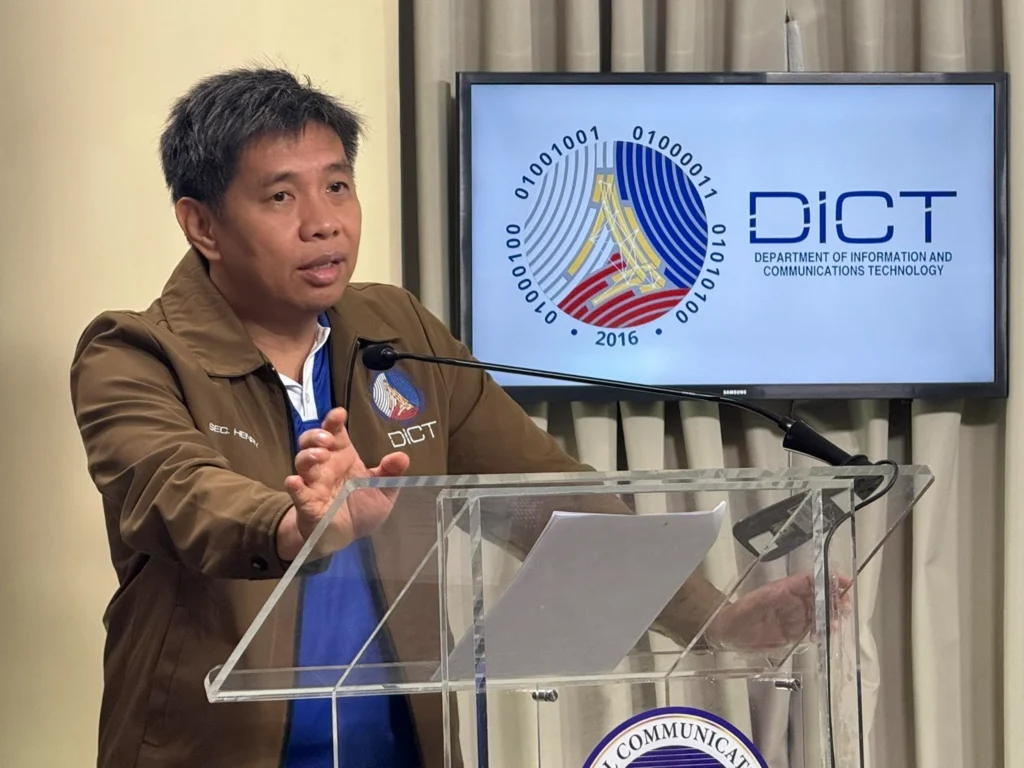|
Getting your Trinity Audio player ready...
|
Department of Information and Communications Technology (DICT) Secretary Henry Aguda said he is optimistic that blockchain can help ensure transparency in the Philippine national budget. Speaking with the Malacañang Press Corps last week, Aguda remarked that using blockchain in the Philippines is very feasible, citing an existing local pool of expertise.
“Our country is skilled to do this, and we have a lot of experts on blockchain,” Aguda said in the local language. He added that one of his tasks is to produce a working prototype to convince senators and representatives of blockchain’s practicality.
“So, it’s very feasible, and one of my assignments is to provide a minimum viable product for a prototype and show it to the Senate and Congress so they can see that it’s feasible before the actual execution,” he said.

Lawmakers push blockchain budget bills
In September, Senator Bam Aquino filed Senate Bill 1330, the “Philippine National Budget Blockchain Act,” while similar measures were also filed in the House of Representatives as a counterpart measure.
These bills propose that the country’s budget documents and transaction records be placed on a blockchain, a distributed ledger intended to prevent tampering and enable public verification. The goal is to make budget processes and allocations accessible and easily understood by citizens.
If enacted, the law would require the executive branch, Congress, and local governments to upload and publish their budget transactions on the blockchain, enabling real-time tracking and verification.
Senate hearing spotlights transparency aims
In its first public hearing on SB 1330, the Senate Committee on Science and Technology, led by Aquino, weighed in on how blockchain could help fix systemic issues in budget transparency.
Aquino said the blockchain proposal is intended to make budget processes “transparent, honest, and secure.” He argued that by placing allocations, bidding, disbursement, and contracts on a publicly visible chain, citizens would be able to track how funds move and where delays or anomalies occur. He also said the bill would incorporate elements from the Full Disclosure Bill, allowing citizens to compare government contracts and expense reports.
Aguda appeared before the Senate panel and reaffirmed the DICT’s role in supporting the initiative. He said blockchain can “bring empowerment, quality services, and faster services to citizens, which can form trust to the government.” Aguda added that the department is already experimenting with stablecoin systems to trace peso transactions in banks.The DICT Secretary also said he would request President Ferdinand Marcos Jr. to certify the bill as urgent.
Legal expert flags practical limits of blockchain in governance
Meanwhile, Former Solicitor General and current Dean of the Silliman University College of Law, Florin Hilbay, has publicly expressed skepticism toward blockchain proposals for budget transparency. In a Facebook post, he questioned the need to place the national budget on a blockchain, writing, “Do we really need to put the budget on a blockchain?”
Hilbay argued that simpler frameworks might promote transparency and accountability more effectively without adopting a full blockchain architecture. He warned that adopting blockchain for its own sake risks overcomplicating processes without guaranteeing better governance.
“Remove the jargon and what you have is a highly centralized database of government data that will be housed in a few servers controlled by future government contractors. The use of ‘smart contracts’ and ‘validator nodes’ will add complexity and technical vulnerabilities that are likely bound to disempower ordinary citizens. This project will also be expensive, as it allocates PhP500 million ($8.6 million) as initial expense,” Hilbay said.
Aguda noted that if the concept passes the test phase, some private sectors and industries have expressed willingness to help fund the platform. The secretary shared that there are already two donors, who have expressed interest, in providing DICT with the said funding. He, however, assured that the funding will go through necessary vetting and governance before they accept the said donation.
“We won’t have a problem with funding, we won’t use the public funds; industry and the private sector will help fund that [instead],” Aguda said.
Watch: Exposure to blockchain will help the Philippines a lot

 02-17-2026
02-17-2026 




